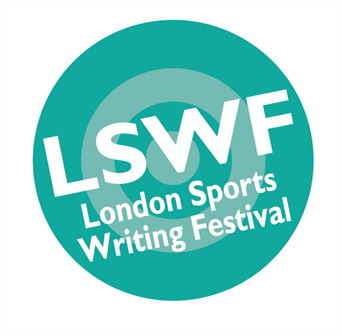Sports writing, from bestselling autobiographies to important polemics, is enjoying critical and commercial success not just in the UK but internationally.

Booksellers are supporting the genre with eye-catching promotions, the review pages give much needed space to it, and literary awards help to ensure that this is no longer a genre aimed only at a small minority of readers. Whether you are a die-hard sports fan or a literary connoisseur, whether it’s an inspiring read or informed statistical analysis, there is sure to be a sports title that will cause you to re-think what was once the preserve of specialist publishers and booksellers alike. Sport after all contains all the elements, from pain to comedy, that a writer might ever need to produce a thoroughly engaging book.
Over the course of the last ten years, we have witnessed what has been referred to as a Golden Age in sport writing. There was a time when we looked to America first for literary sports writing, when sport was not deemed to be a fit subject for literature in the UK. Thankfully those days have passed whilst football remains the most popular area, the growth in sales of books on cycling, running, rowing, cricket, rugby and more besides now find a place on the bestseller lists. The days of the hagiography are, for the most part, behind us and we have witnessed a growth in highly literary and intelligent writing aimed at the widest possible audience. Publishers are investing in the genre and building their own stars. Just last year, Roddy Bloomfield, the legendary sports publisher at Hodder & Stoughton, was nominated for the Editor of the Year award at the Bookseller Industry Awards, whilst Karen Geary and Rebecca Mundy were nominated for the Publicity Campaign of the Year Award, for My Autobiography, by Sir Alex Ferguson. Authors are now also receiving the accolades they deserve, from the widely publicised and much admiredWilliam Hill Sports Book of the Year Award, to many others includingThe Sports Journalist book awards, The Cricket Writers Awards and the British Sports Book Awards. This all proves that there has never been a better time for a sports writer to pick up a pen and write about the sport they love.
Commercially, in 2014 sports autobiographies such as Roy Keane’s The Second Half and Kevin Pietersen’s KP: The Autobiography dominated the bestseller charts, with both memoirs making it into the Bookseller’s top 10 after just two weeks on sale. Going back slightly further, Ronald Reng received huge plaudits for his book about the German goalkeeper who committed suicide, A Life Too Short: The Tragedy of Robert Enke. More than just a book about a footballer, this story changed perceptions about depression in sport, and is a brilliant example of why sports’ writing is an integral part of the literary sphere. It can give context to an environment which so many of us know so little about, and can shed light on the most human of stories, in a world perceived to be full of superheroes with no self-doubt. This, and many other sports books are testament to how the book market is far less parochial than it once was.
And this is the aim of the London Sports Writing Festival. Launched in October 2013 by David Luxton Associates in partnership with the MCC, it seeks to promote all aspects of the sports writing genre, from bestselling autobiographies to long form narrative writing. The festival offers a unique opportunity for audiences who do not normally attend literary festivals to meet their heroes, share ideas and learn more about the books, their subjects and the world of sports literature. Each year, the number of sports’ book related events at Cheltenham, Hay, Edinburgh and elsewhere grows and every event attracts sell-out crowds. This was recognised by the founders of LSWF, and as well as offering panel discussions and book signings, more recently the festival has been able to widen its scope on sports writing, offering masterclasses on how to write on sport, and what publishers are looking for. These events all make up a four-day celebration of sports, in a time when the genre is grabbing the headlines for all the right reasons.
Comments